New Hires in the Department of Political Science
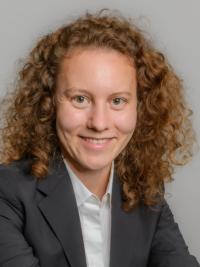
Paola Solimena joined Ohio State as an Assistant Professor of Political Science in 2025. Previously, she was a postdoctoral research scholar at Columbia University’s Saltzman Institute of War and Peace Studies. She studies international security, political psychology, and international relations theory, focusing on how perception drives conflict escalation and de-escalation between states. Her doctoral thesis, Theories of Mind in International Relations: Why Individuals’ Inferences About States’ Motives Vary, jointly won the Dasturzada Dr Jal Pavry Memorial Prize from the University of Oxford.
Paola received her D.Phil (Ph.D.) in International Relations from the University of Oxford, where she was funded by University College and the UK Social and Economic Research Council. She also holds an M.Phil in International Relations from the University of Oxford and a B.A. in International Politics and History from Jacobs University Bremen in Germany.
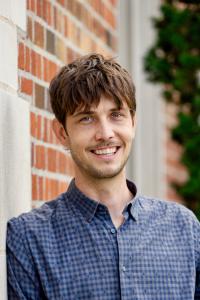
Paul Atwell's research focuses mainly on the Global South, exploring the intersection of identity and social psychology to understand electoral politics, public opinion, and social change.
Paul joined Ohio State University as an Assistant Professor in 2025. Previously, he was a post-doctoral researcher at the Juan March Institute at The University of Carlos III in Madrid. His Ph.D. in Public Policy and Political Science is from the University of Michigan (2023). He did his B.Sc. at the University of Wisconsin in Political Science, making OSU his third stop in the Big 10.
His research draws on methods and theory from across political science, economics, and sociology. His work focuses on identity, social psychology, and information processing in electoral politics—mainly in Africa, but also in other settings. Employing experimental and observational approaches, Atwell investigates how parties, culture, and psychology influence voters. His research has been published in the American Economic Review and the American Journal of Political Science. His general interests include electoral accountability, development policy, collective action dynamics, political geography, social network analysis, and more.

Paige Bollen joined the faculty at The Ohio State University in the fall of 2024. She is a scholar of political methodology and comparative political behavior. Her research interests are driven by questions related to the political effect of context and contact. She explores three interrelated questions: How do our lived experiences complement or contradict information from the media, friends, and family? How does the built environment shape the content of these everyday experiences? And how can we leverage new methods and data sources to measure context and model its effect better? She combines big-data analyses and machine learning methods with causal inference to study these questions, with regional cases primarily in sub-Saharan Africa. Paige completed her Ph.D. at the Massachusetts Institute of Technology and was a postdoctoral scholar at Harvard’s Weatherhead Center for International Studies in 2023-2024.
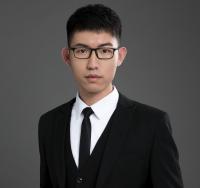
Frederick R. Chen’s research focuses on how economics and security interact to influence international relations, particularly through domestic political mechanisms. His work has appeared in International Organization, the Journal of Politics, and World Politics, among others. He received the David A. Lake Best Paper Award from the International Political Economy Society in 2020. Freddy earned his Ph.D. in Political Science from the University of Wisconsin–Madison (2022), M.A. in International Relations from Peking University (2016), and B.A. in International Politics from Tsinghua University (2013). Before joining OSU in Fall 2023, he was an assistant professor in the S. Rajaratnam School of International Studies at Nanyang Technological University and a Zuckerman pre-doctoral fellow with the Center for International Security and Cooperation at Stanford University.

Zuheir Desai is a political scientist who received his Ph.D. in Political Science from the University of Rochester in 2020. He studies electoral competition and political accountability. His work spans both theoretical models of elections, voting, and policymaking, as well as empirical applications of these models on developing democracies such as Brazil and India. Prior to joining the faculty at OSU, he was an Assistant Professor in the School of Global and Public Affairs at IE University from 2021-2023, and a Postdoctoral Research Associate in the Department of Politics at Princeton University in 2020-21.
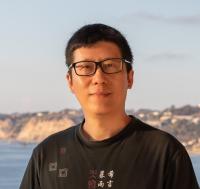
Haifeng Huang is an Associate Professor of Political Science. His current research focuses on information flow and public opinion dynamics, including propaganda, misinformation, the relationship between global information and domestic opinion, and political trust, especially in the context of China. He has also studied economic reform, social transition, media freedom, and democratic electoral competition. His research has appeared in American Political Science Review, British Journal of Political Science, Comparative Political Studies, Comparative Politics, Journal of Politics, Journal of Theoretical Politics, Perspectives on Politics, and Political Behavior, among other journals. He teaches courses on authoritarian politics, information politics, game theory, and Chinese politics. He was a Campbell National Fellow and the Susan Louise Dyer Peace Fellow at the Hoover Institution and is currently a non-resident scholar at the 21st Century China Center of UCSD. He joins OSU from the University of California at Merced.
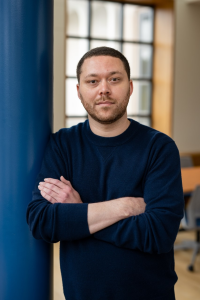
Gregory Leslie is a political psychologist whose research focuses primarily on race and ethnicity. His research agenda has two main goals. First, he examines how Multiracials—the fastest growing demographic group in the United States—reconcile dual racial group membership and exposure to diverse racial contexts and they construct and express their politics. Second, he leverages Multiracials to make inferences about the downstream consequences of demographic change on racial group boundaries and intergroup conflict. His research employs a wide range of methods such as causal inference, machine learning, spatial analysis, and qualitative/thematic analysis, and he generally works with survey and administrative data (i.e., voter files). He received his MS in Statistics and PhD in Political Science from UCLA and was previously a postdoc at Princeton.
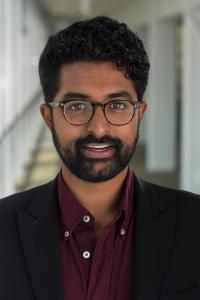
Arvind Krishnamurthy received his Ph.D. in Political Science at Duke University in 2023. His scholarship sits at the nexus of race, institutions, and political behavior, focusing on the politics of the criminal legal system in the United States. This research demonstrates the institutional insulation of municipal police from public influence and democratic oversight. His work can be found in the Oxford University Press Book, Deadly Justice: A Statistical Portrait of the Death Penalty, and is forthcoming in the American Political Science Review.
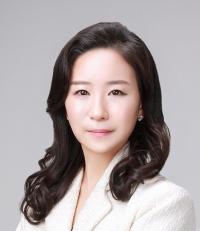
Julia Park received a Ph.D. degree in Politics from NYU in 2015. Previously she was a postdoctoral research fellow at Washington University in St. Louis and University of Pittsburgh. She was an Assistant Professor at the University of Essex. She joined OSU in 2023. She conducts research and teaching in the fields of American political institutions and data science. Her recent research investigates politicians’ legislative and communicational styles they choose to perform under various institutional constraints and explores electoral consequences and policy implications resulting from their stylistic choices. She also studies legislative processes and interbranch relationships. For her research, she uses text analysis, machine learning, causal inference models, surveys, experiments, and formal modeling. Her works were published at the Proceedings of National Academy of Sciences (PNAS), American Political Science Review, Journal of Politics, Legislative Studies Quarterly, Electoral Studies, and Journal of Legislative Studies. She has previously taught Introduction to American politics, U.S. Congress, Maximum Likelihood Estimation, Causal Inference, and various research method courses for undergraduate, Masters, and doctoral students.
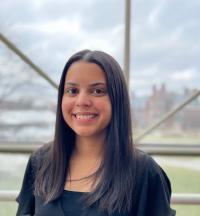
Maria Silfa is a political scientist studying American politics with a focus on interest groups and bureaucratic politics. Her current work explores how business interests interact with the bureaucracy at different stages of the rulemaking process. She received her Ph.D. in Political Science from the University of Rochester in 2022 and was a Postdoctoral Research Associate at the Center for the Study of Democratic Politics at Princeton University in 2022-2023. During the 2023-2024 academic year, she was a Postdoctoral Scholar at the Stanford Graduate School of Business.
